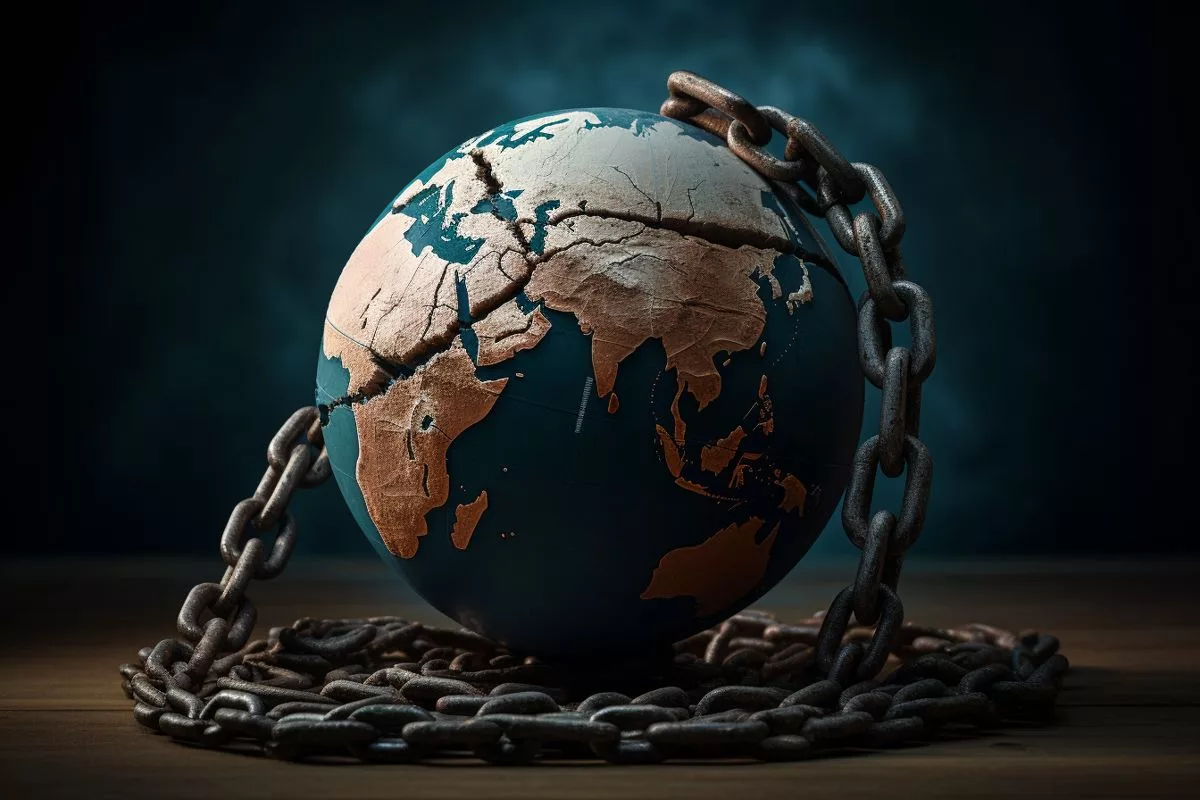South African President Cyril Ramaphosa’s speech at COP 28 in Dubai emphasized the need for developed nations to meet their historical obligations in funding developing countries’ climate resilience efforts. He called for multilateralism, increased climate finance, debt reform, and access to affordable clean technologies. President Ramaphosa’s speech highlighted the importance of collaboration between the global North and South to combat climate change.
The Impact of President Ramaphosa’s Speech at COP 28
President Cyril Ramaphosa emphasized the need for developed nations to meet their historical obligations in funding developing countries’ climate resilience efforts. He also advocated for multilateralism, increased climate finance, debt reform, and access to affordable clean technologies. The president’s speech at COP 28 highlighted the importance of collaboration between the global North and South to combat climate change.
The persistent global effort to combat climate change has cast a spotlight on influential voices from developing countries. A notable example of such voices is President Cyril Ramaphosa of South Africa, who made a significant impact with his address at the Global Stock-Take High Level Segment of the United Nations Climate Change Conference of Parties (COP 28) in Dubai.
Developing Countries in the Fight Against Climate Change
Developing countries, in spite of their individual challenges, have led the charge in the battle against climate change. They are experiencing the most severe impacts of climate change, but the global support they receive in tackling these adverse effects is inadequate, particularly in relation to building climate resilience.
President Ramaphosa voiced his concern about the unmet commitments by advanced nations during his speech. He stressed that the funding provided via the United Nations Framework Convention on Climate Change (UNFCCC), comprising the Green Climate Fund and the Adaptation Fund, has been subpar. This revelation emphasises the need for the Global Stocktake to convey a robust message that historical obligations must be fulfilled and prioritised.
President Ramaphosa identified the opportunity for rectification through the ambitious funding for the newly operational Loss and Damage Fund. He congratulated the President of COP 28 for endorsing the decision to make the fund operational and expressed his appreciation to the countries that have already contributed generously.
Encouraging Multilateralism and Strengthening Climate Finance
During COP 28, the president emphasised the need to return to multilateralism. He advocated for a solid commitment to a genuine collaboration between the global North and South, which would yield meaningful outcomes. The enhancement of climate finance is a critical factor for developing countries to fulfil their climate obligations.
Although the focus is frequently centred on increasing climate funding through private sector finance, it’s equally important to ensure that public sector projects have access to sufficient and affordable finance. These funds can pave the way towards climate-resilient development and low greenhouse gas emissions. Nonetheless, such financial flows must align with the principle of common but differentiated responsibilities and respective capabilities.
Debt Reform and The Importance of Clean Technologies
President Ramaphosa emphasised the pivotal role of debt reform in financial discussions. He highlighted the necessity for a new alliance to substantially reform the Multilateral Development Banks, empowering them to provide a significant and increased proportion of new investments in climate-resilient and low-emissions growth.
Access to affordable, environmentally-friendly technologies is an essential need for developing countries. The president called for financial backing for technological innovation in these nations and for investors to express readiness to provide off-take agreements that stimulate local industrial production.
The Global Stocktake also needs to address the concerning trend of solo and coercive trade distorting measures implemented under the banner of the Paris Agreement. Unilateral carbon border taxes, which reverse financial flows from the Global South to the Global North and shift the climate action burden to the most vulnerable, are unacceptable.
Sustainable Transition and Final Remarks
Such a shift undermines the principle of common but differentiated responsibilities and capabilities and could harm developing economies, obstructing progress towards the Sustainable Development Goals. The necessity for a new partnership to assist sovereign countries on their chosen paths towards low emissions and climate-resilient development was also emphasised.
The demand for grant-based support for just transitions needs to scale up significantly, acknowledging that the transition away from fossil fuels can’t be a universal solution. People and communities currently dependent on the fossil fuel chain require feasible alternative livelihoods. Empty promises won’t suffice. Instead, the emphasis should be on creating a sustainable and just transition path for everyone, ensuring that no one is left behind in this transformative journey.
In conclusion, President Cyril Ramaphosa’s talk at COP 28 was a rallying cry for the global community. It underscored the obligations of developed countries and the necessity for heightened collaboration between the global North and South. With the threat of climate change growing, fulfilling these duties and nurturing this cooperation is now more critical than ever.
What did President Cyril Ramaphosa emphasize in his speech at COP 28?
President Cyril Ramaphosa emphasized the need for developed nations to meet their historical obligations in funding developing countries’ climate resilience efforts. He also advocated for multilateralism, increased climate finance, debt reform, and access to affordable clean technologies.
What is the importance of collaboration between the global North and South in combating climate change?
President Ramaphosa’s speech highlighted the importance of collaboration between the global North and South in combating climate change. Developing countries are experiencing the most severe impacts of climate change, but the global support they receive in tackling these adverse effects is inadequate, particularly in relation to building climate resilience.
What is the significance of the Loss and Damage Fund?
President Ramaphosa identified the opportunity for rectification through the ambitious funding for the newly operational Loss and Damage Fund. He congratulated the President of COP 28 for endorsing the decision to make the fund operational and expressed his appreciation to the countries that have already contributed generously.
What is the role of public sector finance in combating climate change?
Although the focus is frequently centred on increasing climate funding through private sector finance, it’s equally important to ensure that public sector projects have access to sufficient and affordable finance. These funds can pave the way towards climate-resilient development and low greenhouse gas emissions.
What is the role of debt reform in financial discussions?
President Ramaphosa emphasised the pivotal role of debt reform in financial discussions. He highlighted the necessity for a new alliance to substantially reform the Multilateral Development Banks, empowering them to provide a significant and increased proportion of new investments in climate-resilient and low-emissions growth.
What is the necessity for grant-based support for just transitions?
The demand for grant-based support for just transitions needs to scale up significantly, acknowledging that the transition away from fossil fuels can’t be a universal solution. People and communities currently dependent on the fossil fuel chain require feasible alternative livelihoods.








